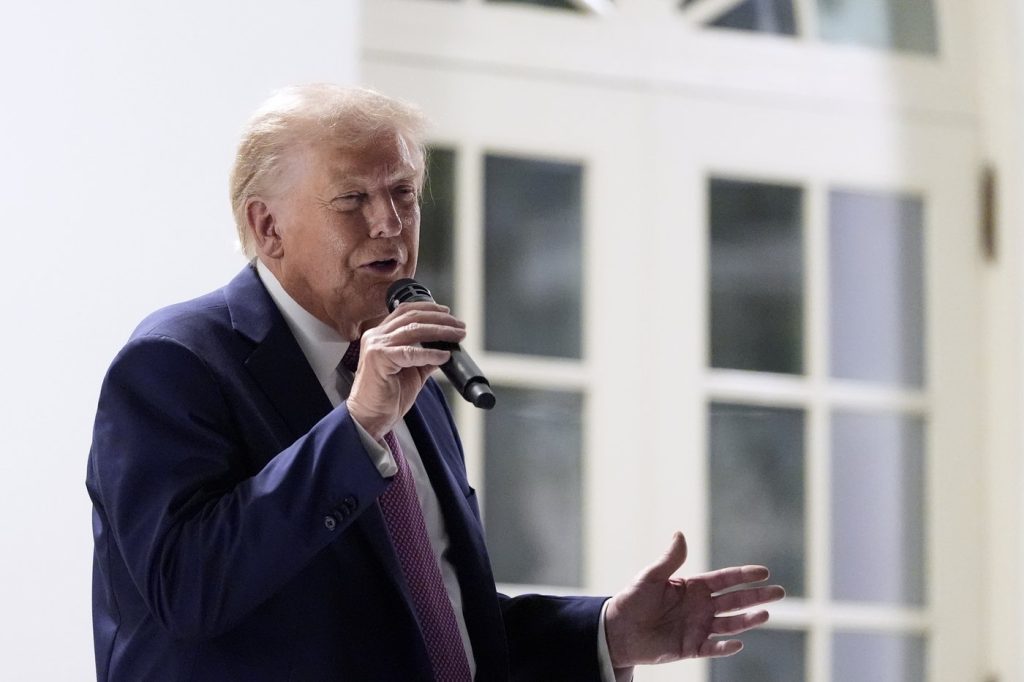WASHINGTON (AP) — During President Donald Trump’s first seven months back in the White House, the U.S. job market has shifted from a robust state to a sluggish one. Recent figures indicate a significant downturn in hiring, with the August jobs report revealing that employers added only 22,000 jobs. The unemployment rate has slightly increased to 4.3%, driven by job losses in sectors such as factories and construction. Notably, the economy experienced a loss of 13,000 jobs in June, marking the first monthly losses since December 2020, a period heavily impacted by the COVID-19 pandemic.
This new data starkly contrasts with the expectations set by Trump regarding a flourishing economy. The administration, which previously boasted of rapid progress, is now appealing for patience from the American people. Trump himself suggested that substantial job growth might be a year away, asserting, “We’re going to win like you’ve never seen.” He indicated that as new factories commence operations across the country, improvements will soon follow.
Despite the optimism expressed by the White House, many Americans are concerned about the evolving economic issues that have now become a liability for Trump. His approval rating regarding economic management has fallen drastically from 56% at the beginning of 2020 to just 38% in July of this year. This dismal approval indicates a growing disconnect between Trump’s promises and the economic reality faced by citizens.
Trump has attempted to deflect blame for the lagging job market and rising inflation. He speculated that more robust job creation would be attainable if Federal Reserve Chair Jerome Powell were to reduce benchmark interest rates. Such drastic cuts, however, risk exacerbating inflation, which has been a growing concern for the economy. Investors are currently anticipating a rate cut from the Fed due to the weakening job numbers.
Democrats have capitalized on this economic downturn, with Senate Minority Leader Chuck Schumer highlighting that Trump’s tariffs and free policies are damaging the economy. Schumer declared, “This is a blaring red light warning to the entire country that Donald Trump is squeezing the life out of our economy.” Trump’s administration has been criticized for its failure to deliver on economic growth and job creation.
Furthermore, Trump has made various claims regarding the state of employment, including that deporting undocumented immigrants would protect job opportunities for Black Americans. However, the Black unemployment rate has climbed to 7.5%, the highest level since October 2021. Since the announcement of tariffs in April, the manufacturing sector has cut 42,000 jobs, and construction has seen an 8,000 job reduction.
In his inaugural address, Trump touted that America would become wealthy through its fossil fuel resources. However, the oil and natural gas sectors have lost 12,000 jobs since January, despite lower gasoline prices. The Energy Information Administration has projected a decrease in crude oil production for the following year, challenging Trump’s previous assertions about economic prosperity derived from oil.
Despite promising to eliminate inflation and cut electricity costs drastically, consumer prices have risen from a 2.3% annual increase in April to 2.7% in July. Electricity prices alone have surged 4.6% this year. Trump’s administration has continued to assert that the economy is on the brink of substantial growth, referencing new tariffs that are expected to generate significant revenue if they survive legal scrutiny.
At a recent dinner with tech industry leaders, Trump reiterated that new developments, such as artificial intelligence initiatives, would lead to unprecedented job creation within a year. However, experts are skeptical, with some suggesting that Trump’s narrative contradicts his claims that job statistics are manipulated for political purposes, especially after he dismissed the head of the Bureau of Labor Statistics following disappointing reports.
Economists like Michael Strain argue that while it’s sensible to predict future economic improvement, Trump’s accusations of rigged data undermine any claims of potential recovery. Furthermore, notable figures in the Biden administration have pointed to a significant decline in job growth, particularly in goods-producing sectors like construction and manufacturing, suggesting ongoing challenges exacerbated by tariffs.
The political implications of the current economic situation remain uncertain. While Trump has a year to demonstrate progress before the next electoral cycle, public sentiment is shifting, as voters are increasingly concerned about inflation and affordability rather than simply job availability. Political analysts believe that the final verdict on economic performance will materialize around Labor Day as the 2024 elections approach.










